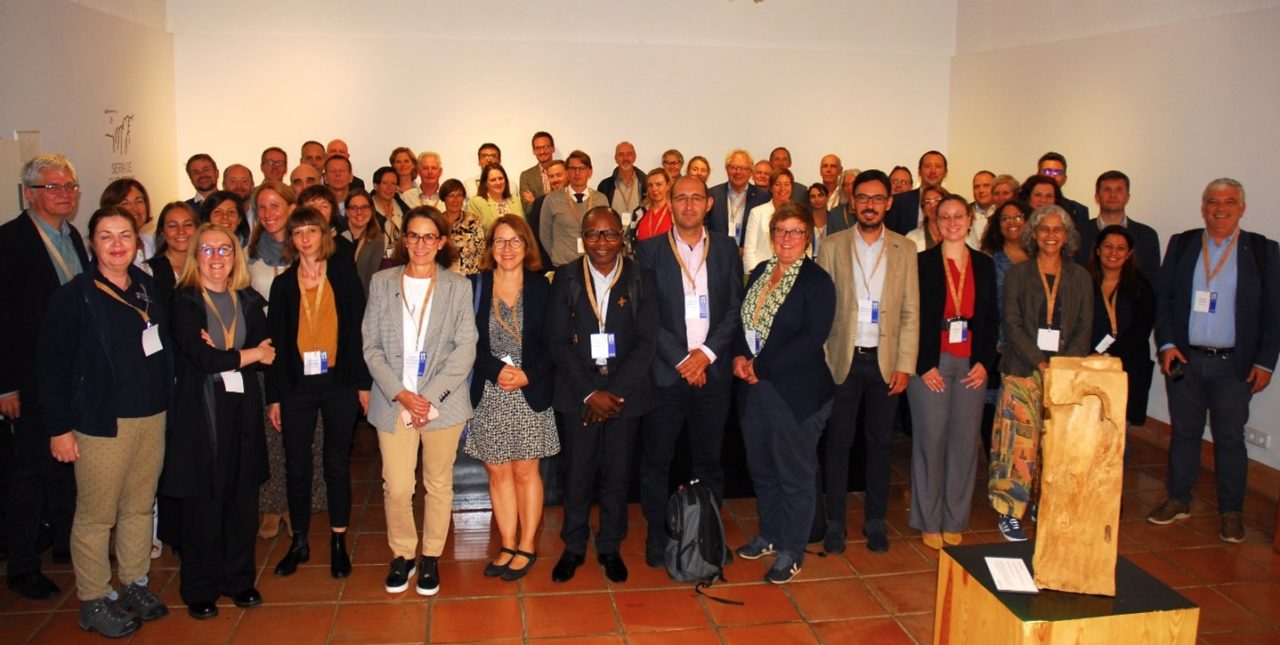-
- Vicepresidenta Tercera del Gobierno y Ministra para la Transición Ecológica y el Reto Demográfico
- Secretaría de Estado de Energía
- Secretaría de Estado de Medio Ambiente
- Secretaría General para el Reto Demográfico
- Subsecretaría para la Transición Ecológica y el Reto Demográfico
- Comisionada del Ciclo del Agua y Restauración de Ecosistemas
- Comisionado para la Economía Circular
- Funciones
- Sedes
- Legislaturas anteriores
- Services by area of activity
- Unidad de Información de Transparencia
- Cualificaciones profesionales
- Signing up
- Public participation
- Gobierno abierto
- Electronic headquarters
- Cartography and Geographic Information Systems
-
- Estadísticas de Energía
- Estadísticas de Minas
- Estadísticas de Agua
- Estadísticas de Biodiversidad
- Estadísticas Forestales
- Estadísticas de Calidad y Evaluación Ambiental
- Estadísticas Meteorológicas
- Indicadores Objetivos de Desarrollo Sostenible (ODS)
- Perfil Ambiental de España
- Sistema Integrado Datos Municipales
- Estadísticas Acceso Información Ambiental
- Calendario
- Contacto y FAQ
- Tenders
- Tenders
- Subastas
- Publications
- Aplicaciones dispositivos móviles
Reunión de Directores UE de Naturaleza

Los Directores Generales de Naturaleza de la Unión Europea, a los que se sumaron sus homólogos de Suiza y Noruega, así como algunas partes interesadas en el ámbito de la Unión, en representación de las ONGs y de sectores productivos, se reunieron en el Centro Nacional de Educación Ambiental (CENEAM), en Valsaín (Segovia), los días 20 a 22 de septiembre.
Estos encuentros se celebran bajo el auspicio de cada Presidencia del Consejo de la UE, con el objetivo de poner en común y debatir sobre las prioridades y orientaciones de la política de conservación, uso sostenible y restauración de la biodiversidad. En esta ocasión, el debate se centró en cuestiones de actualidad y de importante calado relacionadas con la restauración de la naturaleza, la financiación de las políticas de biodiversidad y las buenas prácticas para compatibilizar el despliegue de energías renovables con la conservación de la biodiversidad.
Además, el encuentro permitió compartir sobre el terreno algunas experiencias en materia de conservación y restauración de la biodiversidad, incluyendo la visita al Centro de Recuperación de Anfibios de Valsaín (Segovia) gestionado por el Organismo Autónomo Parques Nacionales (MITECO) y la visita, con el apoyo de la Comunidad de Madrid, a la restauración ecológica de Valcotos (Madrid).
This page provides information on cookies we use: We use our own and third-party cookies to keep your session active, personalise your experience, and collect anonymous statistics about how you use this website. You can choose to accept all cookies or select which types you'd like to allow. To learn more about the cookies we use, read our Cookies Policy.
We use two types of cookies on this site. First, there are Functional Cookies, which are essential for the website to work properly. They store session data to make your experience smoother and more convenient. On the other hand, Analytical Cookies collect information about how you use the portal, without personal data, helping us provide a better and more tailored service.
Introduction to the Use of Cookies on the MITECO.gob.es Website
Cookies are small files that are stored on your device when you visit a webpage. They are essential tools that help provide many of the services available on the information society. Among other things, cookies allow a webpage to store and retrieve information about a user's browsing habits or their device. Based on this information, they can be used to recognise the user and enhance the service provided.
Types of Cookies
Depending on the entity that manages the domain from which the cookies are sent and processes the data, there are two types of cookies: first-party cookies and third-party cookies.
There is also a second classification based on how long the cookies remain stored in the user's browser: session cookies and persistent cookies.
Finally, cookies can also be classified into five types based on the purpose for which the data is processed: technical cookies, personalisation cookies, analytics cookies, advertising cookies, and behavioural advertising cookies.
For more information on this, you can refer to the Guide on the use of cookies from the Spanish Data Protection Agency.
Cookies used on the website
The web portal of the Ministry for Ecological Transition and the Demographic Challenge uses Adobe Analytics, an analytics tool that helps website and application owners understand how visitors interact with their content. Adobe Analytics uses a small number of cookies to collect data and generate usage statistics for websites. This information is sent anonymously and is not shared with third parties under any circumstances. You can choose to accept or reject these cookies, as they do not affect the portal’s functionality. However, they help provide valuable information that allows us to offer a better and more tailored service. For more information about Adobe Analytics cookies and privacy, please refer to the following links:
Additionally, pages featuring content from social network X will only set cookies if the user is logged into the X site. For more details on these cookies, please refer to the following link: Privacy on Social Network X
Finally, a technical cookie named MITECO-compliance is stored, which is a first-party, technical, and session-based cookie. It manages user consent for the use of cookies on the website, remembering which users have accepted them and which have not, ensuring that those who have accepted are not shown cookie consent messages at the top of the page. This cookie is essential for the proper functioning of the portal.
Cookies Policy Acceptance / Rejection
The Ministry for Ecological Transition and the Demographic Challenge gives you the option to accept or reject cookies that are not essential for the portal's operation. Upon accessing the portal, a message will be displayed in the centre of the page with information about the cookie policy and the following options:
· Firefox
· Chrome
· Safari